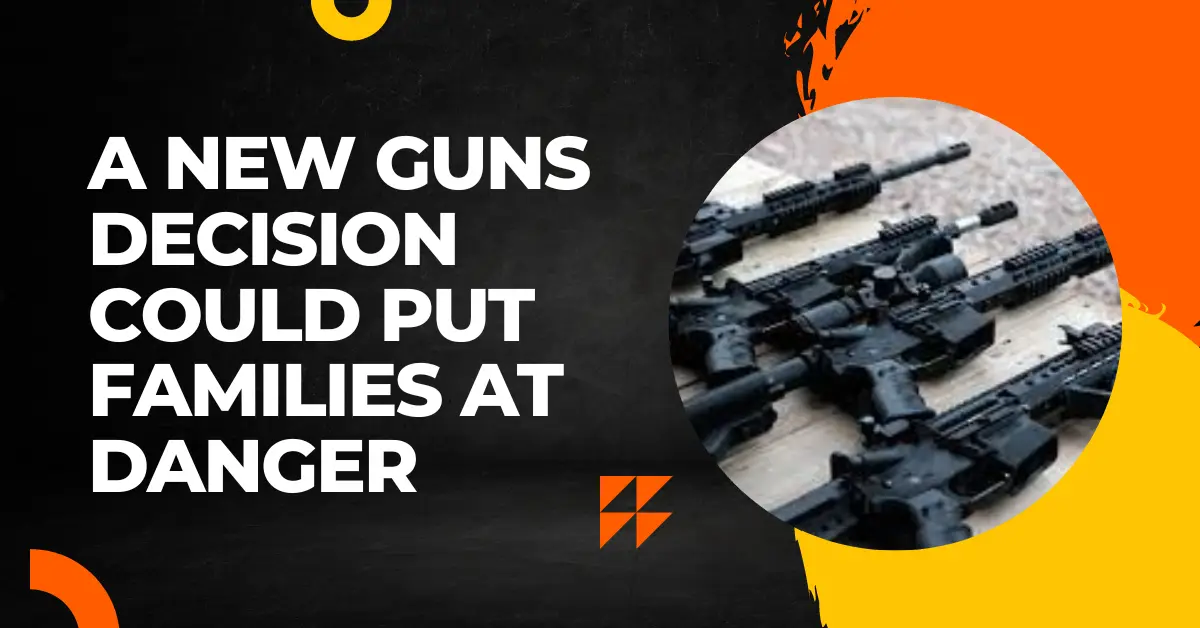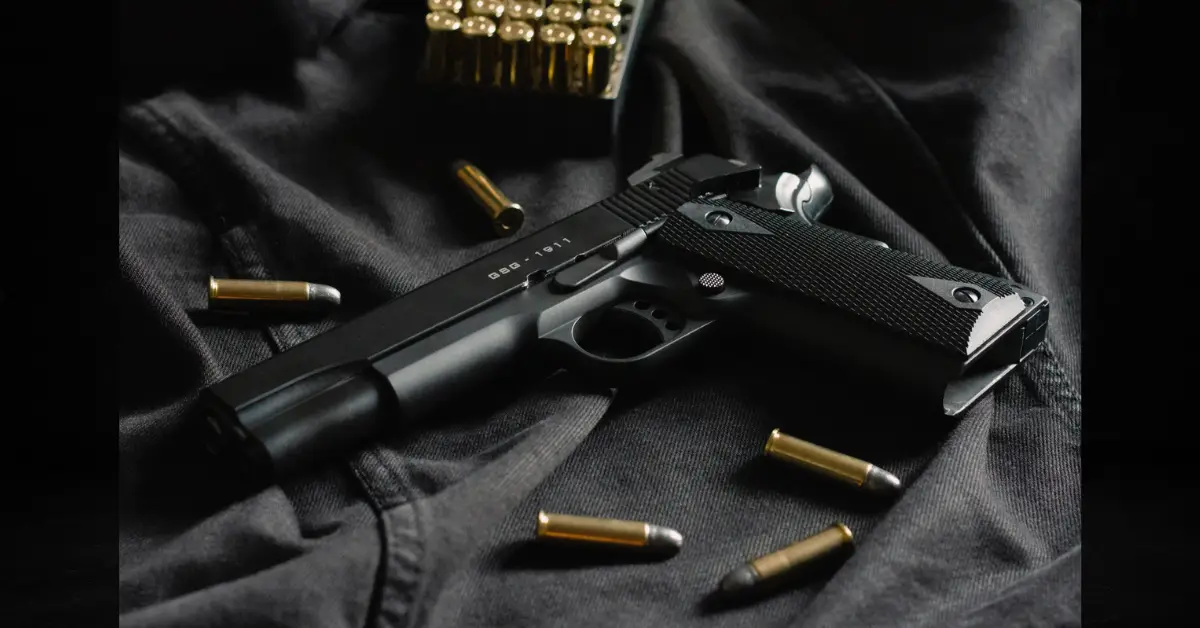Less than a year after the Supreme Court’s landmark decision expanding gun rights, the new legal standard outlined by Justice Clarence Thomas in his majority opinion has changed the legal context for gun regulations and raised doubts about the viability of gun control measures.
Judges are tasked with determining whether the laws are “consistent with the nation’s historical tradition of firearm regulation” as they are being tested in courtrooms from coast to coast, including those recently enacted in the states and longstanding federal restrictions with broad support.
After Bruen, there has been a lot of activity and uncertainty over the Second Amendment, according to Joseph Blocher, co-director of Duke University’s Center for Firearms Law. The Supreme Court’s new methodology, which tells judges to analyze the constitutionality of laws purely based on whether they are in some ill-defined sense compatible with historical tradition, is the cause of the transformation happening in various ways.
The government must prove that the measure is in line with the country’s long history of gun restriction to meet the Supreme Court’s new criteria for deciding whether gun regulations are constitutionally permissible.
According to Thomas, “we hold that the Constitution presumes to protect an individual’s activity where the plain meaning of the Second Amendment encompasses that conduct.” “The government may not just assert that its rule advances a significant interest to justify it. Instead, the government must show that the legislation is keeping with the country’s long history of gun control.”
Illinois Governor J.B. Pritzker signed a bill into law last month that forbids the sale and distribution of assault weapons and high-capacity magazines in the state. The decision, which overturned a New York handgun licensing law, prompted New York and New Jersey governors to enact new firearms restrictions.
Here You Can Find Some Trending News:
- After The Uvalde Massacre, A Texas Lawmaker Introduces Legislation To Increase Mass Shooting Training
- Beyoncé Ties Record Grammy Wins: Beyoncé Breaks Record For Most Grammy Wins of All Time
However, a wave of lawsuits from gun rights groups and gun owners who claim the new regulations do not adhere to the Bruen judgment of the Supreme Court are quickly responding to the new demands. And as they navigated the contemporary legal environment, federal judges cited the June decision in their rulings, many of which prevented the enforcement of gun laws.
“Politics has always been the biggest barrier to gun legislation in America, and it remains as of June last year. Gun regulations have not been aggressively overturned by courts; rather, they have not been passed in the first place, “Blocher declared. “After Bruen, the courts are playing a more active role. But even under the strictest interpretation of Bruen, there is still enough room to enact the sensible gun laws that most Americans support.”
New York’s new regulations, which were signed into law a few days after the Supreme Court’s Second Amendment ruling, demand that applicants for concealed carry licenses exhibit “good moral character” and prohibit the use of firearms in some “sensitive” areas, including temples, bars, and public parks. The New York State Rifle and Pistol Association and six gun owners in New York challenged parts of the law, claiming it was unconstitutional.
Using the guidelines provided in the Bruen judgment as a guide, a federal district court in Syracuse, New York, denied the application of certain parts of the legislation, but the 2nd Circuit upheld them. The Supreme Court was urged to step in by the gun owners, but it denied it, leaving the law in force while the case is still pending.
Similar to New York’s prohibitions, carrying a firearm in some sensitive locations, such as public libraries, museums, taverns, and restaurants, as well as on private land, is illegal under New Jersey law. In response to legal challenges by gun owners and four gun organizations, a federal district court judge halted the sensitive-place regulations’ enforcement last month.
According to U.S. District Judge Renee Bumb, “the state may prohibit conduct protected by the Second Amendment only if backed by a long pattern of firearm regulation.” Here, the plaintiffs have demonstrated that the defendants cannot provide any evidence of a prior history of firearm regulation to support the contested sections.
The Supreme Court’s new legal standard threatens federal statutes passed before the ruling, even though the legal disputes in New Jersey and New York have included new legislation that was passed in reaction to the court’s ruling.
U.S. District Judge Joseph Goodwin dismissed the prosecution against a West Virginia man accused of illegally owning a handgun with a destroyed serial number in May after concluding that the legislation was unconstitutional.
He added, “Serial numbers were not necessary or even generally used at that time; therefore, a handgun without a serial number in 1791 was certainly not deemed hazardous or uncommon compared to other firearms.”
A three-judge panel on the U.S. Court of Appeals for the 5th Circuit said this week that, in light of the Bruen ruling, a 30-year-old federal law forbids someone under a domestic violence restraining order from possessing weapons is unconstitutional.
Judge Cory Wilson for the panel stated, “The government fails to establish that the restriction of the Second Amendment right [by the act] fits within our Nation’s long record of firearm regulation.” He finished by quoting Thomas as saying that the legislation is an “outlier that our predecessors would never have embraced.”
According to Attorney General Merrick Garland, Justice Department officials plan to appeal the decision. It could request a new hearing before the 5th Circuit or petition the Supreme Court to hear the case.
According to Blocher of Duke’s Center for Firearms Law, the domestic violence gun law is seen as “legitimate and even important” today.
“You won’t always find laws that explicitly disarm people for intimate-partner violence in the founding age,” he added. Legislators weren’t very bothered with it, but it would be ludicrous to claim that we can’t do it now just because women weren’t given the legal protection they deserved then and now in 1791.
Although there is bipartisan support for some gun control measures, such as so-called “red flag laws,” which allow courts to issue temporary orders allowing law enforcement to seize firearms from people who are deemed to be a threat to themselves or others, the Bruen decision may open the door for legal challenges to those regulations as well.
According to Esther Sanchez-Gomez, litigation director for the Giffords Law Center, district court judges have had difficulty applying the Supreme Court’s Bruen decision, particularly when determining whether a weapon regulation is consistent with the country’s recorded history.
She told CBS News that it “invites district courts to become historians in ways they’re not suited to be.” Additionally, a thorough examination of the historical record is necessary, which is a laborious operation even for a professional. District courts with busy dockets are not well-suited to undertake that.
When U.S. District Judge Carlton Reeves issued an order in October raising the possibility of appointing a historian to serve as a “consulting expert” in a case challenging the constitutionality of a federal law prohibiting felons from possessing firearms, the challenge for judges in applying the new so-called “historical tradition” test spilled into public view.
“This Court lacks formal training in history. Despite their distinction, the Supreme Court’s justices lack formal training in history. We don’t have historians’ methodological or substantive expertise, “He composed. “Judges sort through evidence differently than historians go through sources and research methods. Furthermore, we lacked expertise in the perspectives of white, well-off, and male landowners on the control of weapons in 1791. However, in the name of constitutional interpretation, we are now supposed to play historian.”
As many court battles over new state gun regulations are still in the early stages, judges have been urged to halt the enforcement of the laws while the cases are being heard.
State and federal efforts to impose more substantial gun limits are nonetheless dogged by their difficulties in applying the Supreme Court’s new legal standard and recent rulings rejecting new and old laws. Advocates for stricter gun control argue that the possibility of court disputes shouldn’t deter politicians.
Sanchez-Gomez states, “Legislators should be taking Justice Thomas at his word and comprehend that Brue is not a regulatory straightjacket.” “It feels like a game of negotiating with yourself at the cost of many lives to do nothing in the wake of the violence out of fear that it could be questioned. Let’s talk about Bruen, grasp what it implies, but given that it’s still a work in progress, it wouldn’t be wise to spend too much time worrying about the exact outside borders.”



Leave a Reply